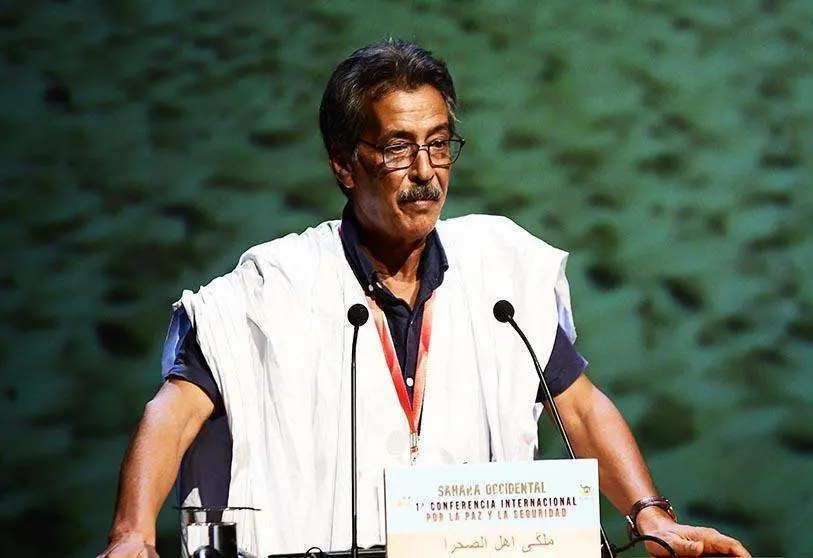The Canary Islands and Western Sahara: divergences on the Saharawi cause

The symbolism of the conflict over the future of Western Sahara in the Canary Islands was highlighted this month by the holding of the 1st International Conference for Peace and Security in Western Sahara in Las Palmas de Gran Canaria on 22-23 September. The conference was significant not only because of who organised it, but also because the speakers included a former prime minister and two former ministers, all three from the political group currently in power in Spain. The conference organiser, the Sahrawi Movement for Peace (SMP), founded in 2020, an organisation formed by former Polisario Front leaders that advocates a peaceful solution to the Sahara conflict beyond - according to them - the Polisario's confrontational stance. For Polisario and its allies in the Canaries, the SMP is a puppet of Morocco and is not the legitimate representative of Polisario. The existence of two movements with a common root, but divergent proposals for resolving the conflict, as well as the symbolism of holding the conference in the Canaries, call for an analysis of the positions of both sides.
s I explained in a previous article, the Canary Islands' link to the Saharawi cause is determined by the proximity of the Canary Islands to the Sahara and by personal ties, which in many cases were transformed into political ones with all that is happening there. As a result, the cause of the Polisario Front, the independence of Western Sahara by force, has a strong echo, with Las Palmas de Gran Canaria being the city where the Polisario arouses most sympathy. It is very likely that this influence explains the SMP's decision to host its conference in this city, as a way of showing Canarian society that there are political alternatives to the conflict beyond the Polisario. In this respect, having a former prime minister, former ministers, journalists and analysts on the speakers' panel probably served to reinforce the political profile of the group, demonstrating that its position of reaching an agreed solution to the conflict has the support of relevant figures in Spanish civil society. But it is also a double-edged sword, as the political participants belong to the Socialist Party, to which the president belongs, responsible for Spain's change of position on Western Sahara, a decision criticised in the Canary Islands as a betrayal of the Saharawi cause. A more varied political representation, with politicians from across the national and Canarian political spectrum, would probably have helped to demonstrate that the MSP proposal has the sympathy of the entire Spanish political spectrum. This would dispel the accusations of its rivals of serving as a front for the Moroccan secret services and of only serving Socialist interests in closer ties with Morocco. The latter point is relevant, as next year Spain has regional and national elections where political groups opposed to the decision to reverse Spain's position on Western Sahara may come to power, something that could damage the position of the SMP, which could be accused of collaborationism with Morocco.
For the Polisario and its friends in the Canaries, the existence of the SMP challenges their narrative of being the sole legitimate representative of the Saharawi cause. The fact that the movement is founded by former Polisario leaders critical of what in their eyes is Polisario's totalitarianism in resolving the Sahara conflict, in addition to the political support it has managed to garner in its short existence - the MSP was founded in April 2020 - is likely to result in doubts about Polisario's effectiveness in defending Saharawi interests and their questioning the effectiveness of its supporters in the Canary Islands. A significant example of the likely weakness of the Polisario and its Canarian allies is the failure to hold a counter-summit to rival that of the MSP, with the presence of senior political figures, as in the case of the SMP. Polisario supporters in the Canaries merely launched a press conference on the eve of the SMP summit, where they accused the SMP of being a front for Morocco and accused the socialist leaders who were to speak of whitewashing Morocco. Such a gesture can be interpreted as a sign of the political weakness of the Polisario cause in the Canaries in a city and island where it is supposed to have the strongest support, indicating that the Polisario cause is not as strong as it appears in the Canaries.
In conclusion, the Western Sahara conflict and its special significance in the Canary Islands was highlighted this month by the holding of the SMP's 1st International Conference for Peace and Security in Western Sahara.
The SMP is a formation founded by former Polisario leaders, critical of its conduct of the Western Sahara conflict, advocating an agreed solution to the conflict. The presence at its summit of a former prime minister and two Socialist ministers, indicative of the support their proposal has in Spain, could also be seen as a betrayal of the Saharawi cause. For the Polisario, the existence of a movement defending the Saharawi cause calls into question its effectiveness as the sole legitimate representative of the Saharawi people, especially its political supporters in Spain. The fact that they did not react through a counter-summit or a demonstration probably indicates that the Polisario's cause is weaker than it appears in the Canaries.

